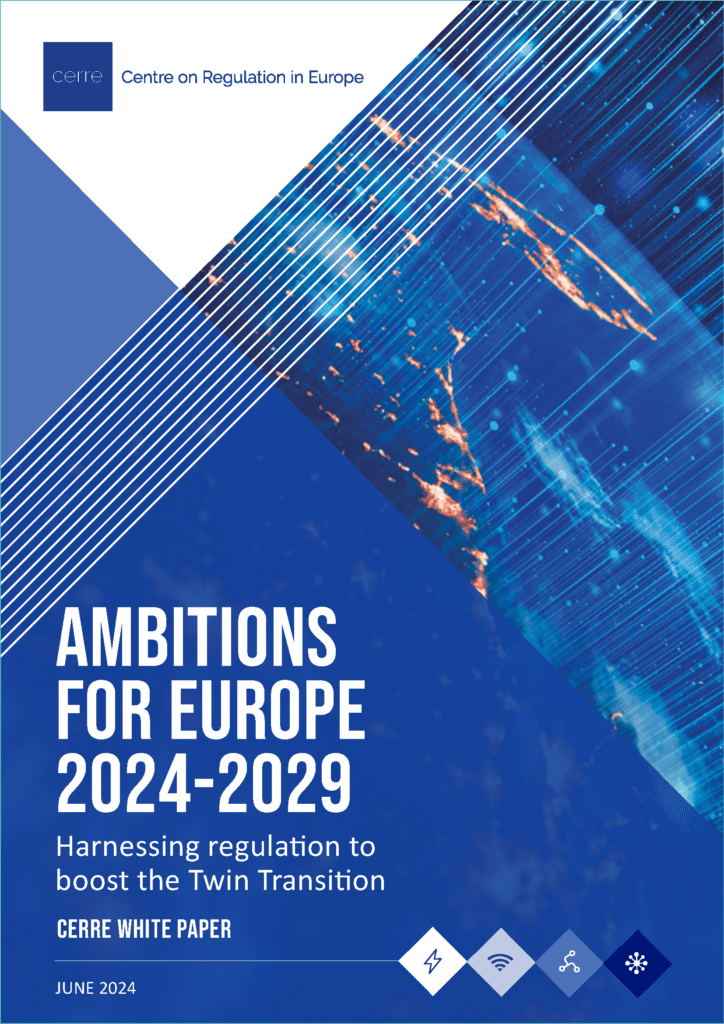Ambition 2: Build robust, resilient, and future-proof digital infrastructures and foundational technologies
Digital infrastructures are the backbone of the digital economy. Beyond traditional telecommunications networks, these include cloud infrastructure, satellite services, and the data required to train AI models or other digital services.
A new digital networks regulatory framework
Europe’s telecommunications framework is over 20 years old and needs modernisation. CERRE’s upcoming study suggests:
- Current policies have driven competition and investment in fixed fibre and mobile networks. These should not be compromised by mimicking other regions’ models.
- Policymakers should avoid adding unbudgeted costs to the telecommunications industry, as seen with roaming and security measures.
- Spectrum policy must be reformed for more efficient allocation and reduced costs.
- The Open Internet Regulation should be updated to allow operators to fully exploit new technologies without inhibiting network optimisation.
Rethink public funding for digital infrastructure
Regulation should focus on bottlenecks in oligopolistic markets rather than monopoly power. As networks virtualise, regulatory interventions will focus more on software interfaces than physical components. A central European telecoms regulator should manage this process, resolving the current tension between the Commission, BEREC, and national regulators. Security and resilience in cooperative agreements, mergers, and national roaming are key. Strategic public funding must fill the gap where private markets cannot achieve non-commercial outcomes like network resilience, security, and sustainability.
Accelerate the retirement of old digital technologies
Europe’s old copper networks and outdated mobile technologies (2G, 3G) must be retired swiftly for economic, security, and sustainability reasons. The Commission should play a proactive role, possibly offering regulatory assistance and subsidies. Spectrum policies should prioritise resource reallocation, and planning for the retirement of terrestrial TV by 2030 should begin.
Apply cloud services regulation to vertical relationships
Cloud infrastructure is increasingly vital to the digital economy. The Data Act (DA) and Digital Markets Act (DMA) have been introduced to ensure competition and prevent cloud providers from leveraging their power into telecommunications. However, vertical relationships between cloud providers and telecom operators must be closely monitored by the Commission to prevent anti-competitive practices.
CERRE’s Ambitions for Europe 2024-2029

- Towards a new regulatory approach: Adopting novel ways of working to adapt to new challenges
- Build robust, resilient, and future-proof digital infrastructure and foundational technologies
- Ensure a safe, positive and fair online platform ecosystem
- Create a thriving, vibrant, and competitive data and innovation economy
- Developing fair and efficient energy and carbon markets
- Building resilient and sufficient energy infrastructure
- Creating appropriate institutional and governance framework to reach net zero
- Supporting effective, efficient, and fair public transport in Europe
- Establish a leading-edge, smart, and sustainable European Mobility Data Space


